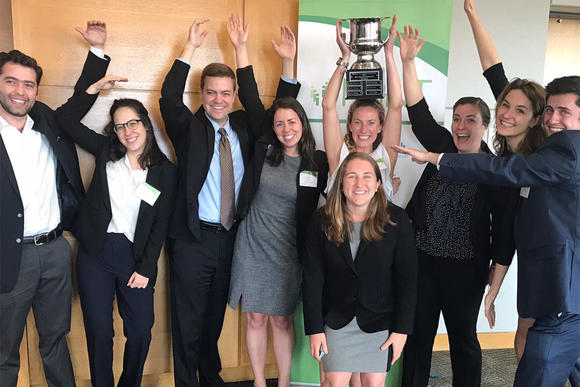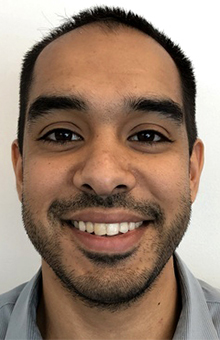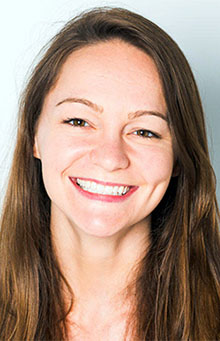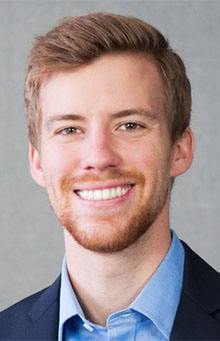From Sourcing to the Pitch: MIINT Offers Hands-On Experience in Impact Investing
Three students reflect on their experience in MIINT, an experiential learning program that tasks student teams with creating an investment pitch for early stage companies. On February 20, Yale SOM’s five MIINT teams will compete for the chance to represent the school in a pitch content at Wharton with $50,000 in investment money at stake.

Over the past five months, 25 Yale School of Management students have been participating in MBA Impact Investing Network and Training (MIINT), an experiential learning opportunity and competition across 30-plus business schools that offers students hands-on experience in the exciting and unpredictable world of impact investing. Each MIINT team of five students sources early stage companies within a particular sector (such as healthcare or education reform). After diligence, research, and deliberation, each team chooses one company and creates a pitch on the investment opportunity it represents. The goal is to show that this company will have a transformative impact in the future: that is, it can generate meaningful social change through a sustainable and profitable business model.
On Wednesday, February 20, the five Yale SOM teams will vie for the chance to be the one team to represent the school in a competition at Wharton, where the winner will secure a $50,000 investment in its early stage company. Students will be pitching to a judging panel comprising venture capitalists, impact investors, and Yale faculty. Yale is looking to repeat its winning performance last year, which resulted in a $50,000 investment in Storm Sensor, a company working to help municipalities better handle the challenges of storm water.
As they prepare for this month’s competition, three first-year team captains reflect on the MIINT experience so far.
Aungar Chatterjee ’20
Early Stage Company Focus: Ed-tech

Between classes and recruiting, the MBA program can feel at once theoretical and transactional. MIINT provides a refreshing opportunity to explore a more raw and human side of business. When our team—composed of Sarah Li ’19, Nate Schorr ’20, Alexandra Sing ’20, and Andrew Speen ’20, —started sourcing companies (i.e. crafting slick email subject lines to get entrepreneurs on the phone), we felt admiration for the people we spoke with: A refugee who fled war and started a business to educate others; a software engineer trying to tackle issues around the ‘future of work’; a former teacher codifying emotional learning to help educators and students. Despite this variety, there was a common thread among these (and maybe all) entrepreneurs: the audacity to believe in one’s ability to create something.
I’ve found it humbling and insightful to speak candidly with individuals who have invested everything into their vision. This is the essence of business, and in some ways, why we’ve all come to pursue an MBA—to understand how businesses start and evolve, succeed or fail. I’ve learned how to read a term sheet and evaluate different investment vehicles; I’ve also learned how to connect with investors and customers, and how a principle or passion can become so much more. Regardless of whether I pursue impact investing as a career choice in the future, what I’ve learned through MIINT, and really through the people whom I’ve met through MIINT, has been an invaluable and profound personal experience.
Kathy Julik-Heine ’20
Early Stage Company Focus: Health

MIINT has absolutely been one of the highlights of my MBA experience so far. Gaining a more intimate understanding of venture capital and investing was one of my priorities coming into Yale SOM. Our weekly meetings as a large group have featured incredibly relevant content and speakers from the field of impact investing that simultaneously complement what we are learning in the core curriculum at SOM and provide us with the tools we need to embark on the investing journey as individual teams.
Sourcing and doing due diligence on our team—comprising Nitya Kanuri ’20, Grady Lenkin ’20, Tanmay Pai ’20, Olivia Shen ’19, and I–has been an epic whirlwind. Our sourcing list included companies that, among other goals, are working toward a predictive analytics solution for better managing opioid outbreaks, are developing an emergency ride-along application for virtually connecting first responders to mental health providers, and are creating a wearable, four-in-one vital signs monitoring device for neonatal care in low-income countries. Every time our team got off the phone with a new founder we essentially spent 15 minutes just gushing with excitement. There is something so powerful about getting to share in a piece of a founder’s journey to make their dream a reality, particularly when that dream is a vision for greater social good. It is nothing short of inspiring to see how much detail and deliberation founders have crafted into their vision for a better future. Their entrepreneurial passion is infectious, and taking part in this has been a great way to grow and learn together as a team.
What excites me most about impact investing is the creativity of the challenge—seeing the innovative ways founders balance the acceleration of their business with scaling impact. Our team has found this to be particularly true in the health sector, where our thesis has us focusing on mental health and addiction. While we have been exposed to so much inspiration and innovation, there have also been many unanswered questions where the founders we’ve connected with struggle to address gaps, risks, and seemingly insurmountable challenges in their business models. I heard Sir Ronald Cohen (co-founder of Bridges Ventures) quote Tennyson around the time I started the MIINT program and it has stuck with me throughout: “To strive, to seek, to find, and not to yield.
Pete Edmunds ’20
Early Stage Company Focus: Future of Cities

MIINT has been one of the most defining parts of my SOM experience so far. There’s a lot of buzz around impact investing, but the term has only existed for 10 or so years, so there’s still a lot of confusion around what it actually means. The opportunity to create an investment thesis, source companies, conduct due diligence, and structure deal terms has been an outstanding way to cut through this noise and learn about the underlying mechanisms of triple bottom line investing. Our second-year leaders— Jake Harris ’19 and Susannah Burrage ’19—have done a great job of bringing in outside professionals working in impact investing to coach us on the process and field questions about our work. The whole process has been tremendously helpful for recruiting, as it’s helped me refine my interests and speak more credibly to potential employers about what skills I can offer. It has also given me a much better understanding of impact investing’s role in the broader ecosystem of players seeking to drive social and environmental change.
The team element makes MIINT an enjoyable experience throughout the six-month-long competition. My team of five—including Emma Broderick ’21, a first-year joint-degree student at Yale SOM and the Yale School of Forestry & Environmental Studies; Alex Chen ’20; Tanya Sharma ’20; and Haley Trost ’20—has focused on the future of cities and how innovative new technologies can help make urban living more environmentally sustainable. I feel fortunate to work with such talented and driven teammates whom I’ve learned so much from and can’t thank enough for making this experience so positive. We’re excited to pitch a company that has built a parking lot tile that can harvest kinetic energy from cars driving over it. Learning about new technologies like these and speaking with the entrepreneurs behind them has been both inspiring and humbling, and it’s great to be able to offer thought partnership and a potential investment to help them grow their impact.
